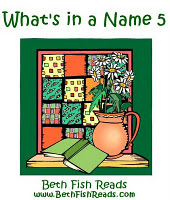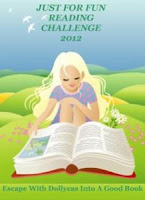Confessions of an Ugly Stepsister
By Gregory Maguire
Genre: Fiction
Published 1999, HarperCollins Publishers
Paperback, 368 pages
ISBN: 0060987529
Synopsis:
We have all heard the story of Cinderella, the beautiful child cast out to slave among the ashes. But what of her stepsisters, the homely pair exiled into ignominy by the fame of their lovely sibling? What fate befell those untouched by beauty ... and what curses accompanied Cinderella's looks?I have been meaning to read this book for some time, simply because I loved Gregory Maguire's Wicked so much. This book I read considerably slower than I expected, though I still found the plot compelling. In this retelling of Cinderella, the reader follows the viewpoint of Iris, one of the "stepsisters" of the original tale. Iris is smart and artistic, but plain-looking -- a fact her mother never fails to point out endlessly. Iris's older sister, Ruth, is dumb and mute, which makes life at times both interesting and difficult for Iris and their mother, Margarethe.
Set against the backdrop of seventeenth-century Holland, Confessions of an Ugly Stepsister tells the story of Iris, an unlikely heroine who finds herself swept from the lowly streets of Haarlem to a strange world of wealth, artifice, and ambition. Iris's path quickly becomes intertwined with that of Clara, the mysterious and unnaturally beautiful girl destined to become her sister. While Clara retreats to the cinders of the family hearth, Iris seeks out the shadowy secrets of her new household -- and the treacherous truth of her former life.
The trio flee England for Margarethe's homeland of Holland -- the reasons for which remaining a mystery for most of the book -- and are forced to beg for shelter and work before falling under the mercy of a local painter. This is where Clara, the blonde changeling girl standing in the place of "Cinderella," is introduced. Her beauty is so ethereal that she lives a reclusive, sheltered existence under the extreme protection of her mother. Strangely, Clara and Iris seem to make up two sides of the same coin -- where one lacks the other excels in. Where Clara hides from strangers, Iris is adept at social interaction. Iris's vivid imagination makes up for Clara's lack of intelligence.
Margarethe's machinations first get her and her daughters into the same household under Clara's parents, as their servants. Then when Clara's mother dies through mysterious circumstances, Margarethe maneuvers them to become Clara's step-family, effectively pushing Clara's father almost completely out of the picture. Ironically, a picture is what serves as the glue for almost the entire plot, motivating all of the main characters to a particular behavior.
Clara is almost the complete opposite of what one would expect from the image of "Cinderella." She is spoiled, rich, obstinate, paranoid, reclusive, delusional, confrontational, and quite childish even in adulthood. Margarethe is a villain that is relate-able, as her choices throughout the book stem from an obsessive need to both survive and thrive. Though at times I intensely dislike the things that she spouts, I cannot hate her due to the suffering she endures from a certain ironic malady that befalls her.
The ending that is so familiar to the original tale seems to happen almost by accident -- and how easily Iris could have taken Clara's place makes me a bit sad for Iris. The ending to the book is also a nice surprise, causing me to rethink many of the scenes and the thoughts that could have been occurring to one of the central characters. Indeed, the ending makes the book almost worth a re-read.
The Cover: I love the cover, with its allusions to the original Cinderella tale and the picture-window effect.
First Line: "Hobbling home under a mackerel sky, I came upon a group of children."
Aside from the fact that I had to look up mackerel (yup, the fish), this is an unusual way to begin a story, but I am still intrigued.
Favorite Quote: "In the lives of children, pumpkins turn into coaches, mice and rats turn into men. When we grow up, we realize it is far more common for men to turn into rats."

Read For: I Want More Challenge, Read a Myth Challenge, 101 Fantasy Challenge

























0 comments:
Post a Comment